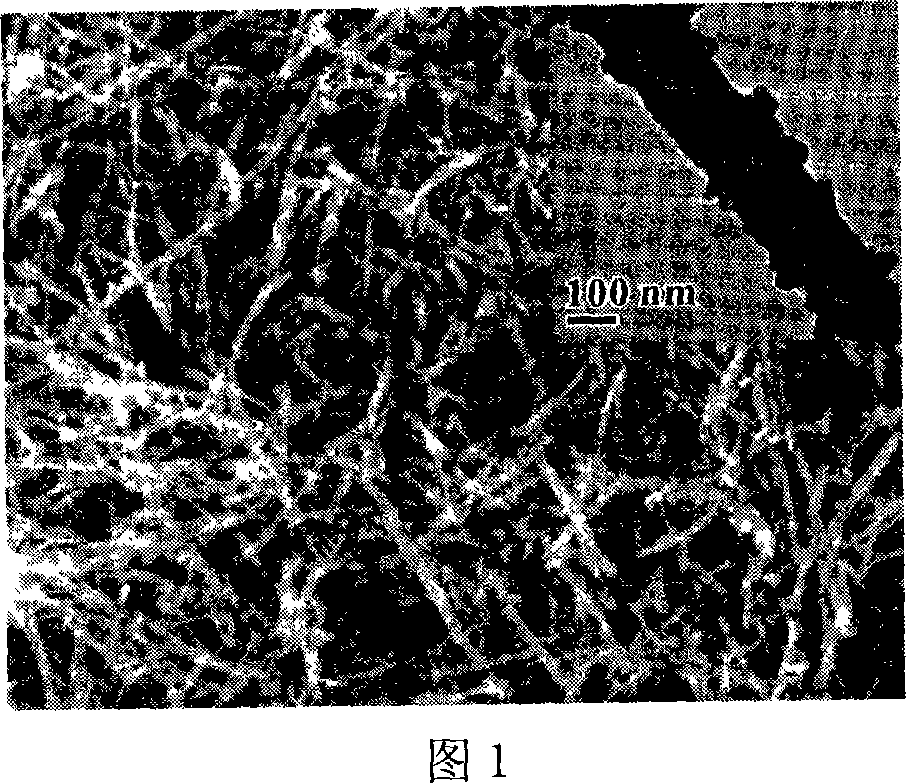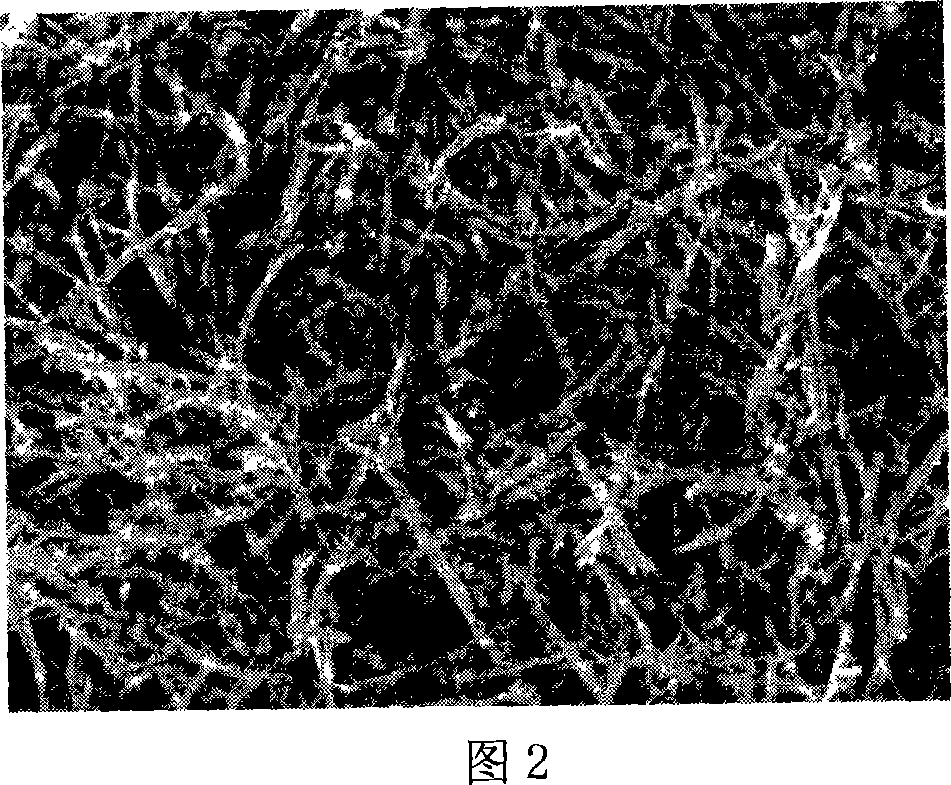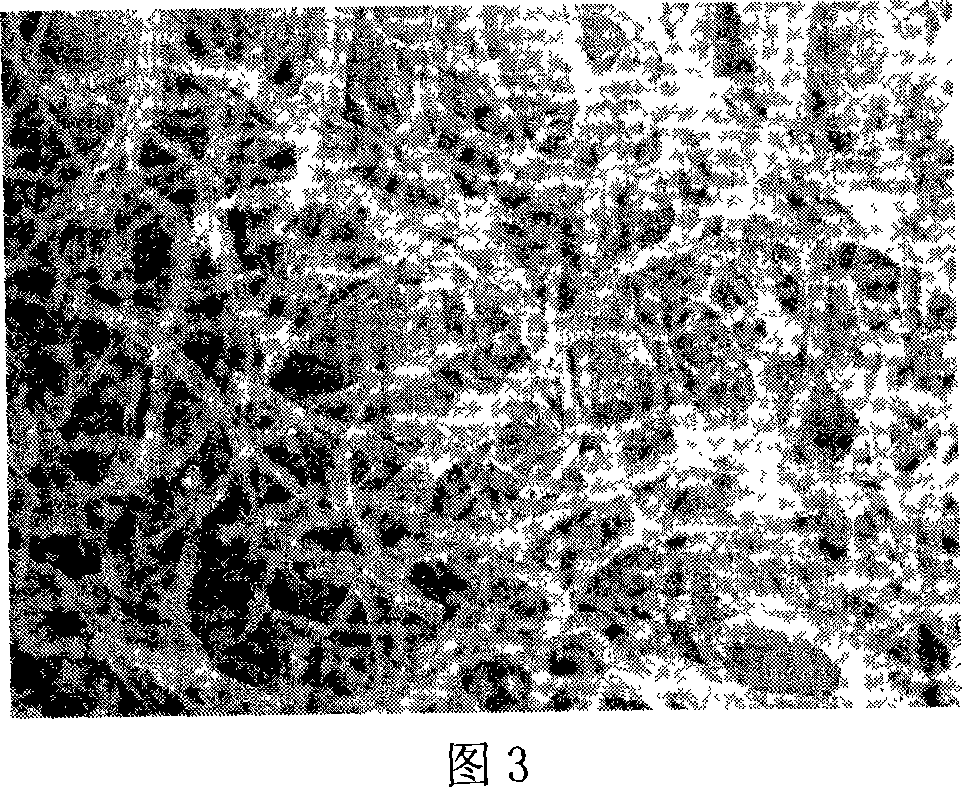Method of preparing organic macromolecule nano tube from sodium sulfide and perchlorobenzoacenaphthylene
An organic polymer, benzoacenaphthene technology, applied in the field of organic polymer nanotubes, can solve the problems of cumbersome operation process, unfavorable large-scale synthesis, inability to synthesize in one step, etc., and achieves high reaction efficiency, clean and pollution-free reaction process. The effect of applying value
- Summary
- Abstract
- Description
- Claims
- Application Information
AI Technical Summary
Problems solved by technology
Method used
Image
Examples
Embodiment 1
[0022] Dissolve 78mg of sodium sulfide nonahydrate in 16ml of absolute ethanol to obtain solution A, add 20mg of perchlorinated benzoacenaphthylene to 0.5ml of toluene to obtain mixture B, ultrasonicate for 30s, add the above obtained solution A and mixture B into a 18ml volume In the PTFE lining, ultrasonically for 30s, put the PTFE lining in the reaction kettle and heat it to 180°C, keep the temperature constant for 72h, then take out the PTFE lining after cooling to room temperature, and put the PTFE lining in the lining The mixture was poured out, centrifuged with a 5ml centrifuge tube, and the obtained solid product was washed 5 times with toluene, ethanol and water successively to obtain the target product.
[0023] From the SEM image (see FIG. 1 ), it can be seen that the length of the obtained organic polymer nanotubes is mostly several micrometers to more than ten micrometers. It can be seen from the TEM image (see the upper right enlarged view of FIG. 1 ) that the di...
Embodiment 2
[0025] Dissolve 78mg of sodium sulfide nonahydrate in 16ml of absolute ethanol to obtain solution A, add 20mg of perchlorinated benzoacenaphthylene to 1ml of cyclohexane to obtain mixture B, ultrasonicate for 30s, add the above-mentioned solution A and mixture B to a volume of 18ml Among the polytetrafluoroethylene lining, ultrasonically for 30s, put the polytetrafluoroethylene lining in the reaction kettle and heat it to 180°C, keep the temperature constant for 72h, then take out the polytetrafluoroethylene lining after cooling to room temperature, and put the polytetrafluoroethylene lining in the lining The mixture was poured out, centrifuged with a 5ml centrifuge tube, and the obtained solid product was washed 5 times with toluene, ethanol and water successively to obtain the target product.
[0026] From the SEM image (see FIG. 2 ), it can be seen that the morphology of the organic polymer prepared by using cyclohexane and ethanol as solvent is similar to that of the polyme...
Embodiment 3
[0028] Dissolve 78mg of sodium sulfide nonahydrate in 16ml of absolute ethanol to obtain solution A, dissolve 20mg of perchlorinated benzoacenaphthylene in 1ml of tetrahydrofuran to obtain mixture B, ultrasonicate for 30s, add the above-mentioned solution A and mixture B to a volume of 18ml polytetrafluoroethylene Among the vinyl fluoride lining, ultrasonic 30s, put the polytetrafluoroethylene lining in the reactor and heat it to 180°C, keep the temperature at a constant temperature for 72h, then take out the polytetrafluoroethylene lining after cooling to room temperature, and put the mixture in the lining Pour it out, and centrifuge it with a 5ml centrifuge tube, and wash the obtained solid product with toluene, ethanol and water 5 times respectively to obtain the target product.
[0029] From the SEM image (see FIG. 3 ), it can be seen that the morphology of the organic polymer prepared by using cyclohexane and ethanol as solvents is similar to that of the polymer nanotubes ...
PUM
 Login to View More
Login to View More Abstract
Description
Claims
Application Information
 Login to View More
Login to View More - R&D
- Intellectual Property
- Life Sciences
- Materials
- Tech Scout
- Unparalleled Data Quality
- Higher Quality Content
- 60% Fewer Hallucinations
Browse by: Latest US Patents, China's latest patents, Technical Efficacy Thesaurus, Application Domain, Technology Topic, Popular Technical Reports.
© 2025 PatSnap. All rights reserved.Legal|Privacy policy|Modern Slavery Act Transparency Statement|Sitemap|About US| Contact US: help@patsnap.com



